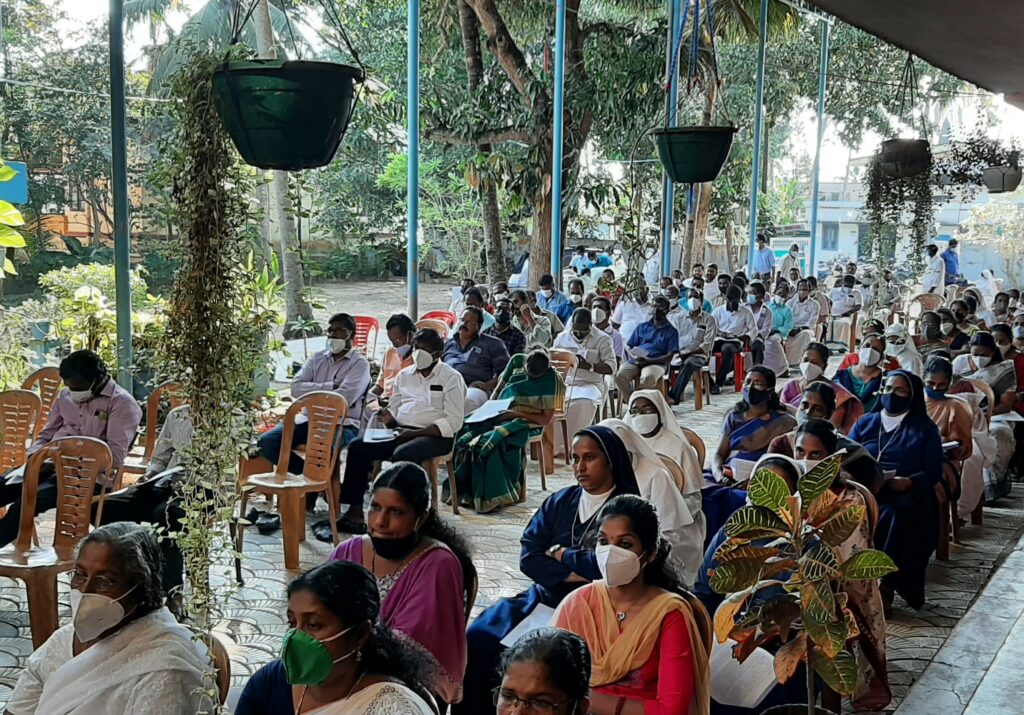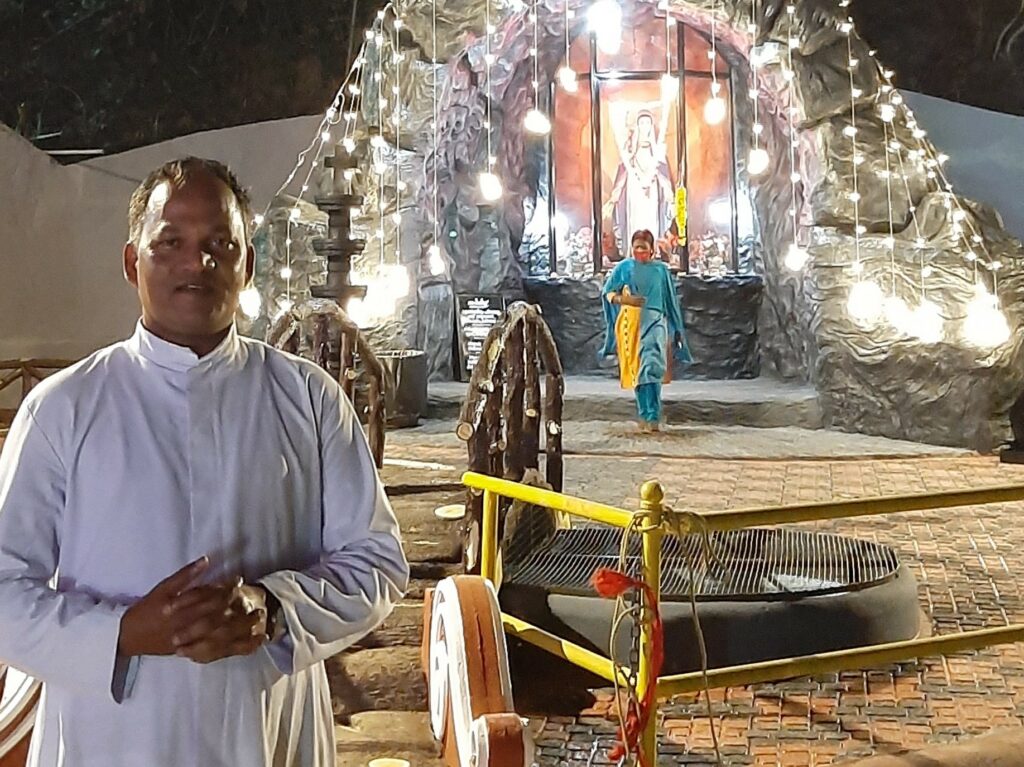Recently JPII Leader Fr. Baiju Julian (Cohort XIII, India) has been appointed as Episcopal Vicar at Diocese of Quilon (Kollam), Kerala, India. The Catholic Diocese of Quilon is considered to be the first Catholic diocese in India, established in 1329 by the Dominican Missionaries, and its first bishop was Friar Jordanus Catelani. Fr. Baiju is excited about his new pastoral assignment which includes, among other tasks, being responsible for the local clergy.
“This appointment gives me a greater role to coordinate various ministries in this Catholic Diocese. Of course, in the spirit of the time, I would like to give more stress on the promotion of interreligious dialogue and interfaith understanding,” says Fr. Baiju.
Reflecting on a recent escalation of tensions between Muslims and Catholics in Kerala, Fr. Baiju emphasizes, “Although Muslim-Christian dialogue has become a sensitive issue, we need to strengthen the peaceful co-existence of multi-religious communities in India.”

Fr. Baiju is inspired about the mission of his new office. He sees it as a chance of meeting people scattered among 120 parishes and 20 substations. “I have to strengthen various activities, ministries, and movements in the diocese seeking dialogue with Hindu and Muslim communities,” he points out. Moreover, he also continues to teach Bioethics and Moral Theology at the Pontifical Institute of Philosophy and Theology at Aluva.
Fr. Baiju admits that the most challenging for him would be transmitting faith to the new generation, especially considering a faith crisis, prevalent in Indian society. In his opinion, it is becoming more difficult to present Jesus Christ in a pluralistic and secular country.
Thinking about his Russell Berrie Fellowship experience in Rome, Fr. Baiju admits, “I feel confident that I could do something for the wellbeing of people. My confidence comes from the Russell Berrie Fellowship programme, which enabled me to prepare academically and practically for social interaction with various religious denominations. My experience at the Angelicum opened my mental frames to see the world in a more positive and diverse way. I understood the power of religion and its impact on individuals and society.”
“If we do not possess the keys of dialogue with other religions and society, we would be isolated or hijacked by religious fundamentalism and fanaticism. The Russell Berrie Fellowship gave me tools to learn the latest trends in ecumenism and interreligious relations. Now I am going to put into practice what I have learned. May I place on record with deep gratitude the impact the Russell Berrie Fellowship made on my life,” he concludes.
The John Paul II Center warmly congratulates Fr. Baiju on his new appointment and wishes him remarkable achievements in his ministry!

